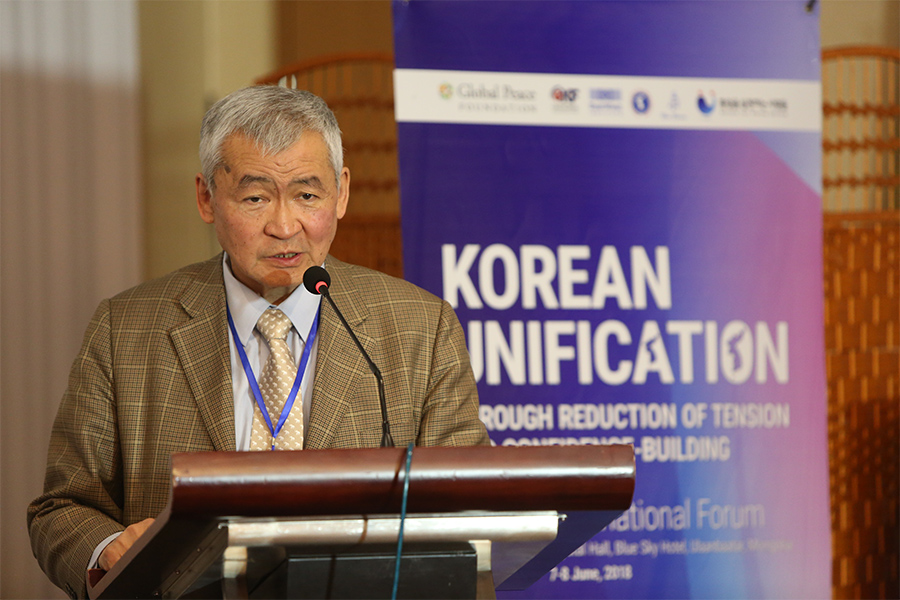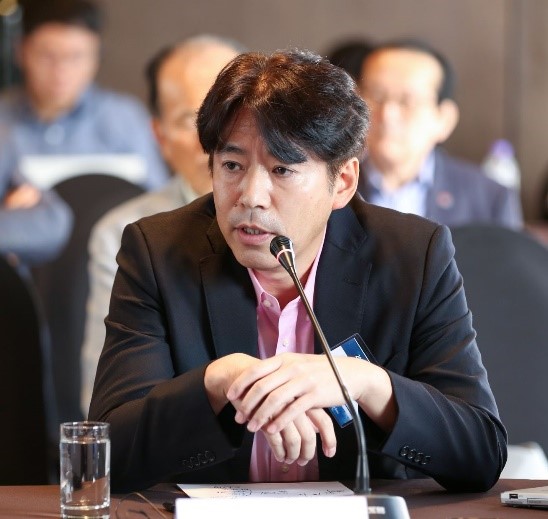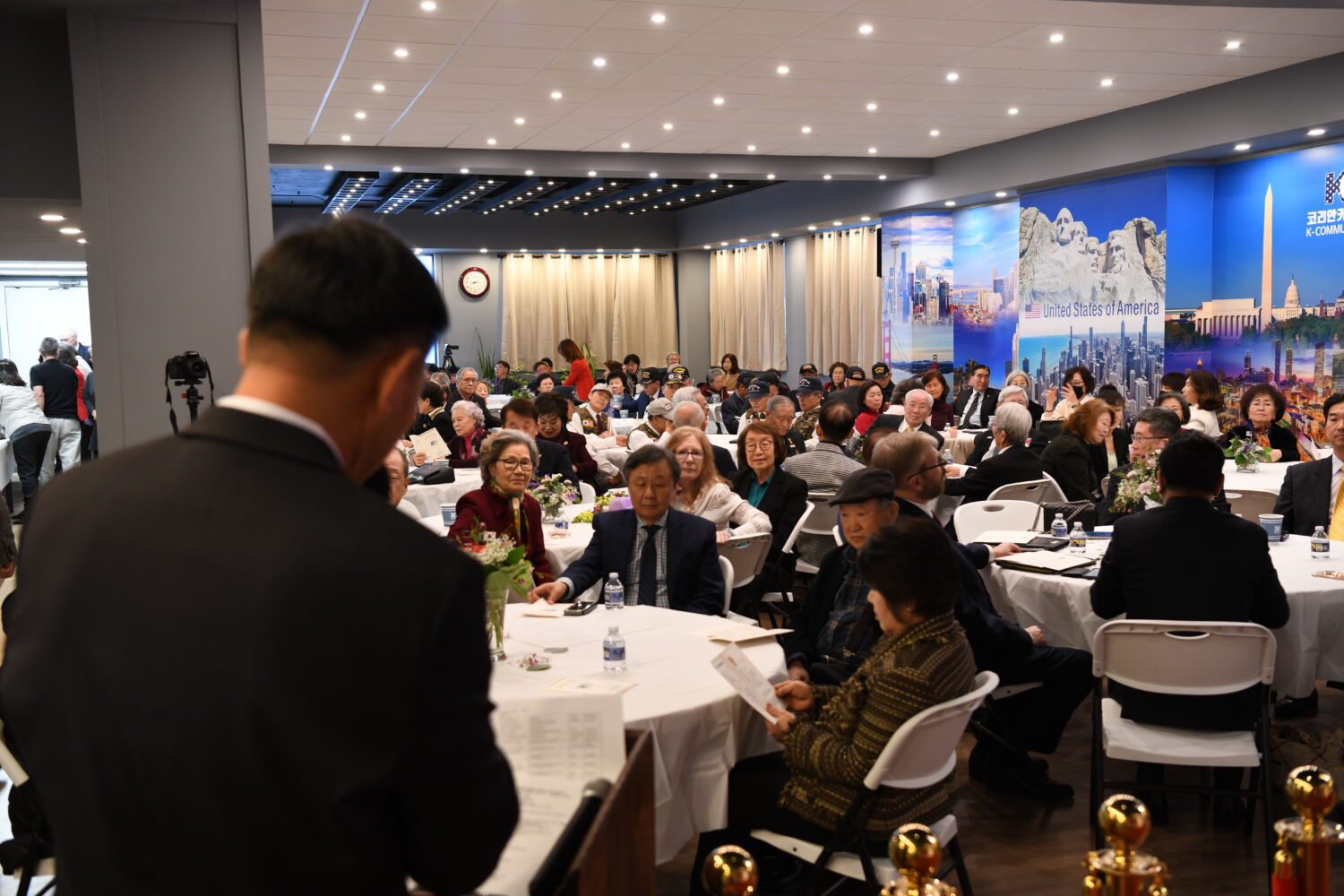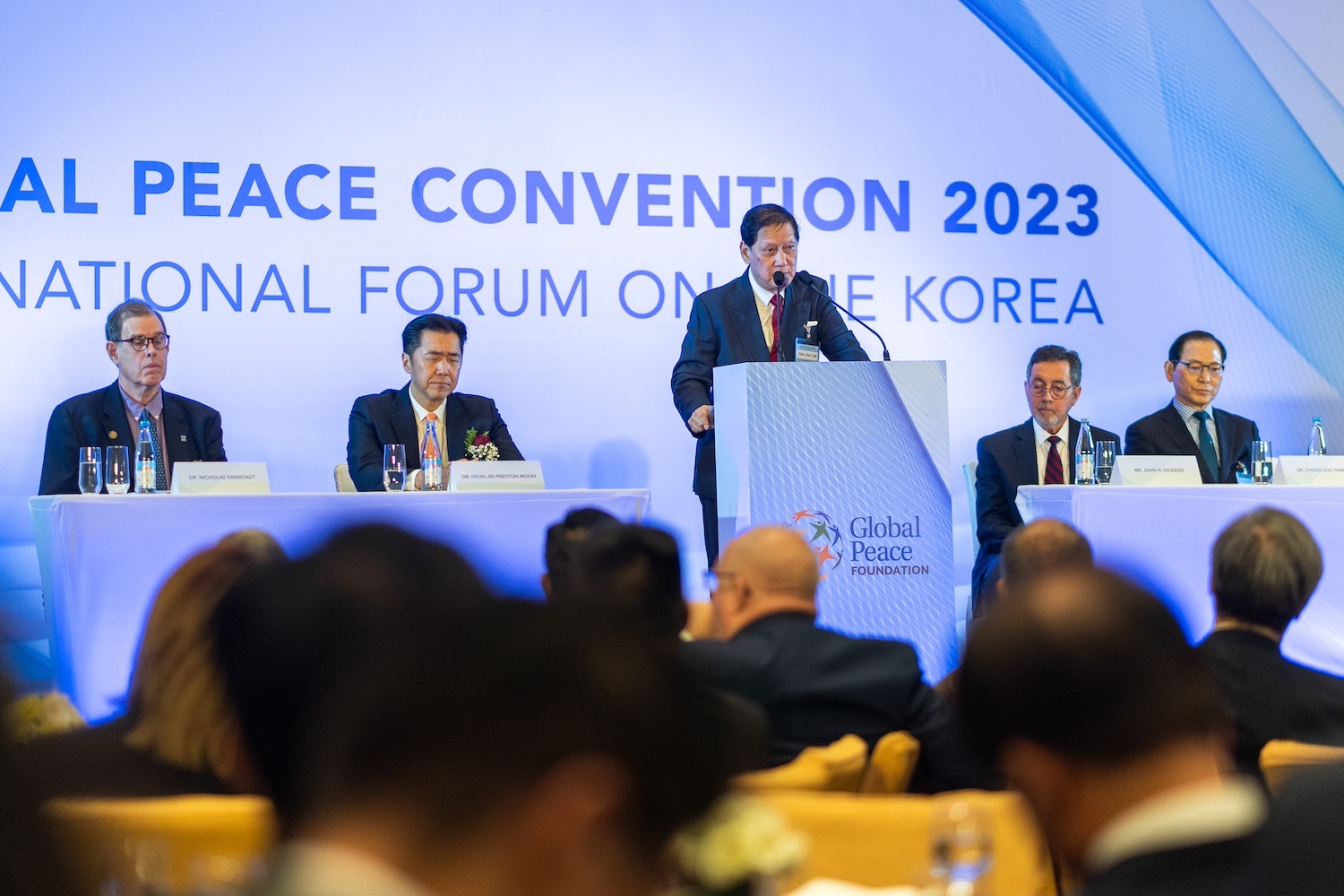Experts from Mongolia and Japan examined Korean reunification, denuclearization, and the impact of Covid-19 on open and closed societies at a virtual roundtable on May 26. The forum specifically explored the perspectives of the two regional states and their historic relations with Korea. The roundtable also contributed to setting an agenda for an August 15 International Forum on One Korea in Seoul and a September convening in Ulaanbaatar (both virtual, details to follow).
Global Peace Foundation International President James Flynn welcomed participants joining remotely from the United States, South Korea, Japan and Mongolia. He noted that GPF has been working on Northeast Asia peace and security issues with focus on Korea for several years. The pandemic has health as well as economic and political implications, Flynn said, “yet in history sometimes a confluence of events can arise that can lead to unexpected opportunities and bold new directions.”
Dr. Jargalsaikhan Enkhsaikhan, Chairman of Blue Banner and Former Mongolian Permanent Representative to the United Nations, reminded the forum of Mongolia’s experience as a divided country buffering two powerful neighbors.
“After the 1911 revolution Mongolia had two major goals: acquire recognition by the major powers, especially Russia and China, of its independence and unite Mongolians living in Russia, Mongolia and China in a sovereign Mongolia,” he said.

Ambassador Jargalsaikhan Enkhsaikhan, Chairman of Blue Banner and former Mongolian Permanent Representative to the United Nations, addresses an international forum on Korean unification in 2018.
“The question was whether the two neighbors would agree to that. China was against recognizing Mongolia as an independent country, while Russia was supportive of Mongolia’s independence, seeing it as a buffer between it and China. As a result of nearly three decades of Mongolia’s active policy and Russia’s security interests, the 1945 Yalta agreement recognized Mongolia’s de facto status quo, confined within its de facto borders, and Mongolia recognized the Yalta agreement. In 1949 the People’s Republic of China recognized Mongolia and established diplomatic relations. Since then Mongolia promotes broad people-to-people ties with its northern and southern brethren as well as economic and cultural relations with them.
“In Korea at least the great powers agree on the goal of unification, although each one has its own interest and vision of unified Korea. Hence there is hope for reunification. None of these powers is saying ‘no.’”
Northeast Asia Nuclear Weapons-Free Zone
The second issue addressed by Ambassador Enkhsaikhan was nuclear weapons in Northeast Asia (NEA). Blue Banner had undertaken a study on the most effective way of denuclearizing the Korean peninsula, he said, and has concluded that a bold conceptual approach was needed, meaning defensive, sole-purpose use of nuclear weapons and reviewing the nuclear umbrella doctrine in Northeast Asia.
“Denuclearizing the Korean peninsula needs to be addressed bearing in mind the security and development interests of the entire region, and the economic interest of the DPRK itself,” Dr. Enkhsaikhan said. “Establishing a NEA nuclear-weapon-free zone consisting of the territories of two Koreas and Japan, and providing the DPRK, ROK and Japan with legally based security assurances by the U.S., Russia and China (the P3) would benefit these three zonal states.
A credible ‘mini Marshall Plan’ [for the DPRK] could be a win-win solution for the Korean peninsula as well as for overall regional security and development.
“Japan and ROK would benefit from security assurances of Russia and China, while the DPRK would acquire a legally based U.S. security assurance, since as per NWFZ practice, the P3 would have to sign a protocol on security assurances that needed to be ratified by their respective legislatures. Moreover, Russia’s and China’s participation in providing security assurances would provide additional guarantees to the DPRK that the U.S. assurance to the DPRK would be honored both politically and legally. In that United Nations Security Council can play an important role.
“Blue Banner believes that it would also be important to address the issue of providing the DPRK with economic assistance. This means not only lifting the Security Council sanctions depending on the progress in negotiations but also providing the DPRK with a credible ‘mini Marshall Plan.’ Each one of the P3 has its economic interest in doing so. Japan and South Korea would also be interested in that as well. Such an approach could be a win-win solution for the Korean peninsula as well as for overall regional security and development.
Enkhsaikhan said that recent inter-Korean and DPRK-US summits have shown that there is political interest in denuclearizing the Korean peninsula, yet “the devil is always in details.” He noted that working level negotiations should aim more seriously toward denuclearization of the entire Korean peninsula rather than demanding almost unilateral denuclearization of the DPRK first or applying political and economic “maximum pressures.”
Japanese perspectives on Korean Unification
Dr. Sachio Nakato, professor of International Relations at Ritsumeikan University in Kyoto, said his personal view is that unification is necessary and Japan should support it. “Unfortunately many people, most scholars, believe Japan is not interested in unification,” he said.
But what kind of unification is preferable for Japan, especially the Japanese government? Nakato said that a liberal democratic government without nuclear weapons would be welcomed by Japan. Japan also prefers that a unified Korea retain an alliance with the United States, and trilateral cooperation is most preferable. “North Korea may not like this idea, but this is an ideal path for unification from Japan’s perspective.” He cautioned that a unified Korea with over-weighted ties to China would be a matter of great concern for Japan.

Dr. Sachio Nakato, professor of International Relations at Ritsumeikan University in Kyoto, discusses Korean unification at the 2019 Global Peace Convention is Seoul.
“Denuclearization is a most important issue, but from North Korea’s perspective, denuclearization is not simply a challenge to the DPRK but to the entire Korean peninsula. When you talk about denuclearization and include South Korea, is this acceptable to the United States? The Singapore Declaration only directed the nuclear issue toward the DPRK, with no mention of the South. A nuclear free zone as presented by Dr. Enkhsaikhan is a promising idea. It is a question of trust of all countries, including the United States.”
Commenting on the presentations, Dr. Jai Ryu, founder of the One Korea Foundation, said the pandemic has provided a reset, time to think about the pandemic impact, implications of the election of the Moon government and talk about a peace treaty and questioning the need of American troops, as well as discussions about a “federation” of Korea.
Dr. Ryu also noted a significant change in American public opinion with respect to China. “The way that China has operated during the pandemic has influenced Americans who now see the difference between Chinese people and the communist party,” he said.
Ambassador Tsedendamba Batbayar, Editor-in-Chief of the Mongolian Journal of International Affairs, said the corona virus exposed weakness and strengths of closed and open societies. “In open societies information was transparent and available everywhere,” he said. “But in a closed society like North Korea, information was restricted and not shared with the outside world. The pandemic exposed different leadership styles, and all countries will need to rethink national preparedness.”
The roundtable was hosted by the International Advisory Council on Korean Unification and NE Asia Peace and Development, the Global Peace Foundation, and Action for Korea United.



